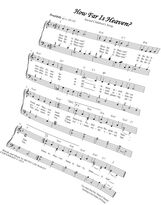
We were told that rounding those bases and coming into a strong finish at Home Plate gives the audience great satisfaction. These Western notions of TONALITY and what makes up a pleasing composition, especially a SONG, over many centuries, have been very well entrenched.
And then we were told that all of these ideas could be thrown out for EFFECT if we wanted to make the audience feel uneasy, uncomfortable, or upset, or many other emotions.
Experimental Music is just what it says it is. Composers in this arena turn many of the entrenched procedures upside down, inside out, and any which way. Norms are thrown out the window. And much of the music is meant to be improvised by the performer on the spot. I listened to one such composer perform and then explain some of his sacred compositions. He said that this was how heard and felt the texts and how they came to him in musical form. Some were quite beautiful, but I would have appreciated the music better if it had had more predictable structures and singable melodies, and some repetitions that reinforce the message.
Call me old school, but I like to have STRUCTURE that I can count on. I think there is plenty of room for improvisation and experimentation, but I like the idea of eventually coming HOME.
Sometimes composers of experimental music, especially those who set scriptural TEXTS believe that the texts should remain unaltered and never be repeated such as in Baroque or Classical music. They say that melismas or repeating of phrases for poetic reasons just slow down the action and disrupt the flow of thought.
On this point, I have to disagree. I think that repetition for poetic reasons is very good. Some repetition helps with PATTERN and RHYME schemes as well as providing additional EMPHASIS for important points. (And besides these, for a singer, the melismas are such fun to sing!)
Give me a tune that gets into my mind and won't go away any day! I love melodies and chord progressions that take me around the bases and let me slide into Home Plate! So satisfying!








 RSS Feed
RSS Feed